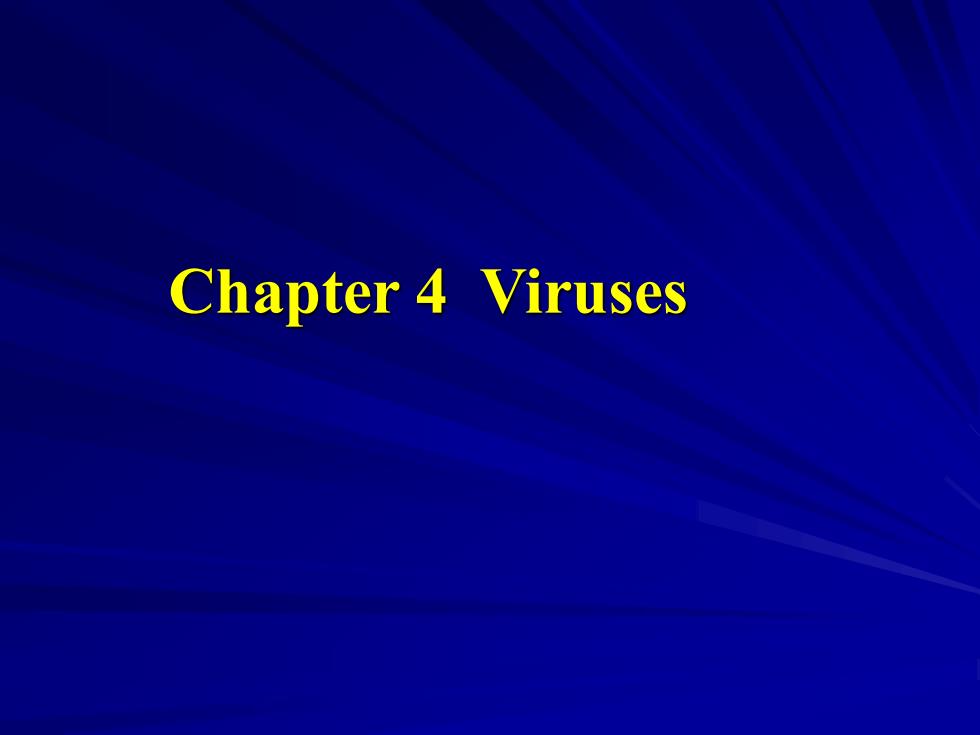
Chapter 4 Viruses
Chapter 4 Viruses
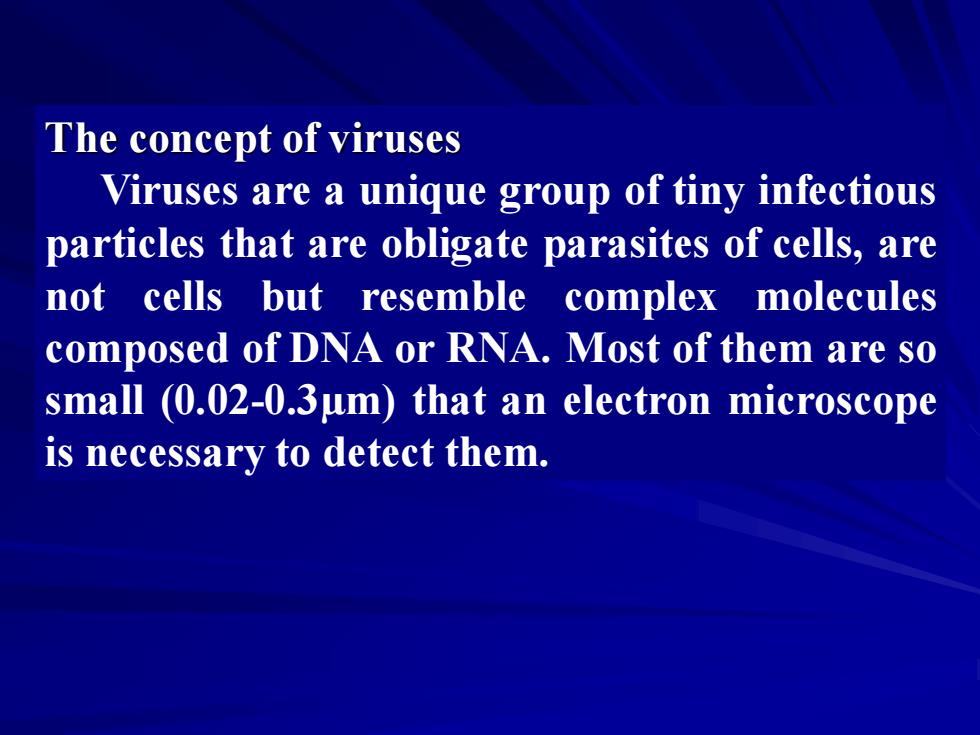
The concept of viruses Viruses are a unique group of tiny infectious particles that are obligate parasites of cells,are not cells but resemble complex molecules composed of DNA or RNA.Most of them are so small (0.02-0.3um)that an electron microscope is necessary to detect them
The concept of viruses Viruses are a unique group of tiny infectious particles that are obligate parasites of cells, are not cells but resemble complex molecules composed of DNA or RNA. Most of them are so small (0.02-0.3µm) that an electron microscope is necessary to detect them
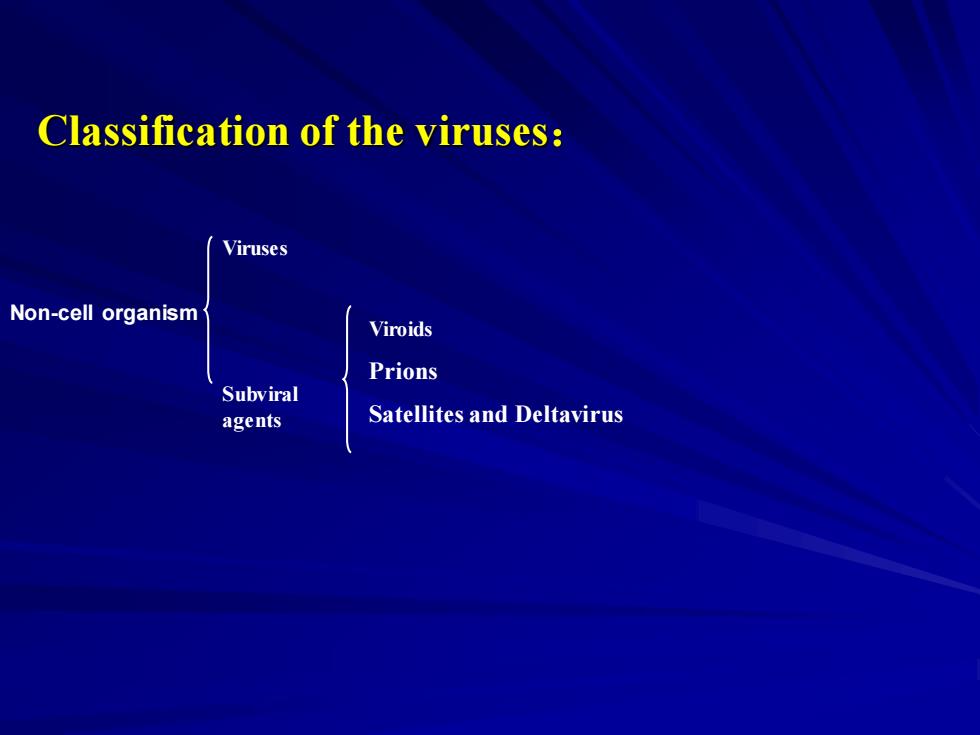
Classification of the viruses: Viruses Non-cell organism Viroids Prions Subviral agents Satellites and Deltavirus
Classification of the viruses: Viruses Subviral agents Viroids Prions Satellites and Deltavirus Non-cell organism
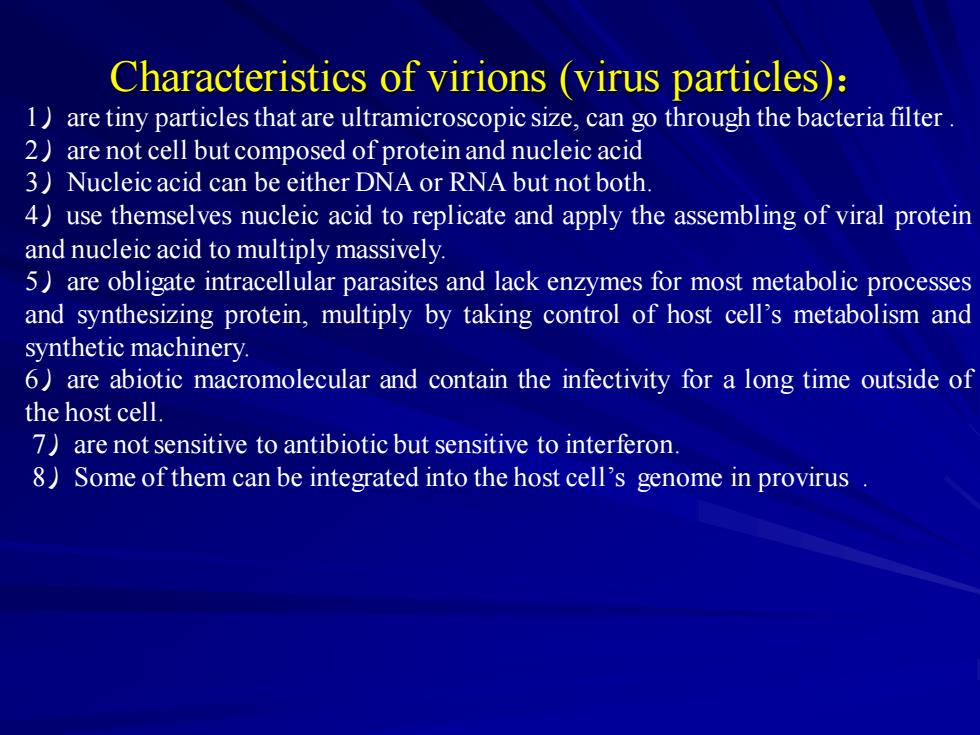
Characteristics of virions (virus particles): 1)are tiny particles that are ultramicroscopic size,can go through the bacteria filter. 2)are not cell but composed of protein and nucleic acid 3)Nucleic acid can be either DNA or RNA but not both. 4)use themselves nucleic acid to replicate and apply the assembling of viral protein and nucleic acid to multiply massively. 5)are obligate intracellular parasites and lack enzymes for most metabolic processes and synthesizing protein,multiply by taking control of host cell's metabolism and synthetic machinery. 6)are abiotic macromolecular and contain the infectivity for a long time outside of the host cell. 7)are not sensitive to antibiotic but sensitive to interferon. 8)Some of them can be integrated into the host cell's genome in provirus
Characteristics of virions (virus particles): 1)are tiny particlesthat are ultramicroscopic size, can go through the bacteria filter . 2)are not cell but composed of protein and nucleic acid 3)Nucleic acid can be either DNA or RNA but not both. 4)use themselves nucleic acid to replicate and apply the assembling of viral protein and nucleic acid to multiply massively. 5)are obligate intracellular parasites and lack enzymes for most metabolic processes and synthesizing protein, multiply by taking control of host cell’s metabolism and synthetic machinery. 6)are abiotic macromolecular and contain the infectivity for a long time outside of the host cell. 7)are notsensitive to antibiotic but sensitive to interferon. 8)Some of them can be integrated into the host cell’s genome in provirus
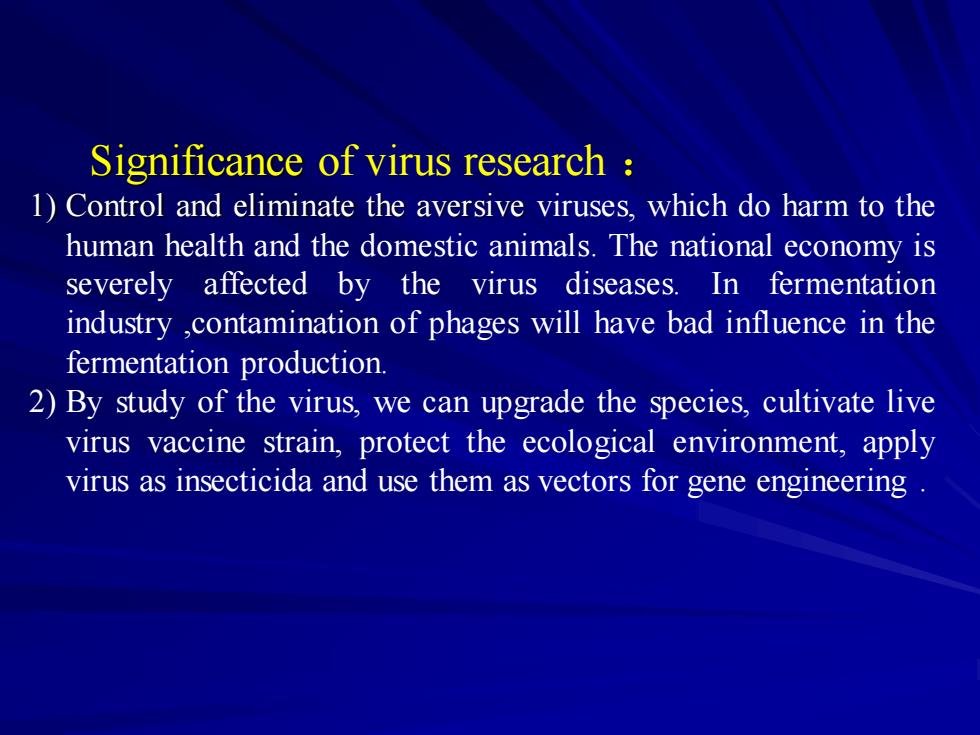
Significance of virus research 1)Control and eliminate the aversive viruses,which do harm to the human health and the domestic animals.The national economy is severely affected by the virus diseases.In fermentation industry ,contamination of phages will have bad influence in the fermentation production. 2)By study of the virus,we can upgrade the species,cultivate live virus vaccine strain,protect the ecological environment,apply virus as insecticida and use them as vectors for gene engineering
Significance of virus research : 1) Control and eliminate the aversive viruses, which do harm to the human health and the domestic animals. The national economy is severely affected by the virus diseases. In fermentation industry ,contamination of phages will have bad influence in the fermentation production. 2) By study of the virus, we can upgrade the species, cultivate live virus vaccine strain, protect the ecological environment, apply virus as insecticida and use them as vectors for gene engineering